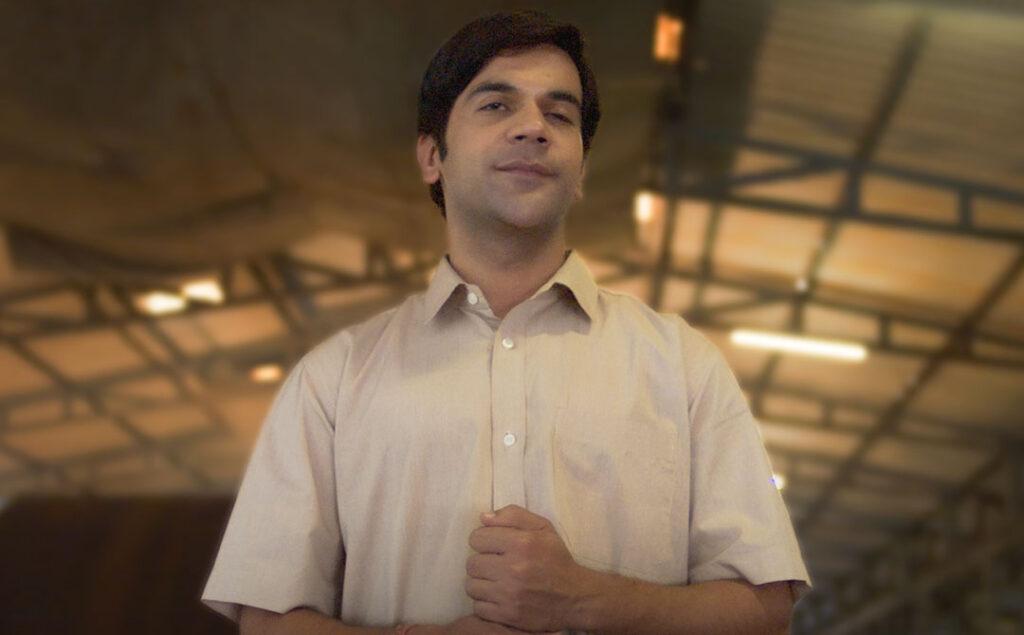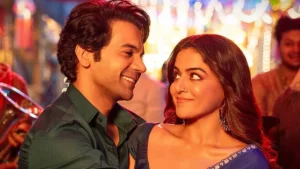
Tushar Hiranandani’s second directorial outing Srikanth opens with a man attempting to bury his one-day-old son. Reason? The infant is blind. Hailing from a village in Andhra Pradesh, the little one’s future looks bleak to his uneducated father. So far so good. In no time, the iconic ‘80s melody ‘Papa Kehte Hain’ in Udit Narayan’s voice springs in the background. Now, irrespective of its context in the original film, the mere choice of song made me go, “What? Since when?”
Srikanth is no film about paternal emotions. The parents are as good as wallflowers in the plot. Every character other than Srikanth (played by Rajkummar Rao) exists to uplift or curb the young man’s growth.
By the way, Srikanth Bolla happens to be a blind entrepreneur who successfully employs and empowers the visually challenged to dream big. The graph is familiar yet the story is one where the man raises a toast to himself – more so because Rao transforms into Srikanth with his egos and flaws in place.
We know Rao can be a great actor when he wants to be, and Srikanth sees him in top form. What about the ecosystem he lives in? Who are his people? What were their challenges – not only in dealing with Srikanth – but also as individuals? Hiranandani’s film gives us no answers. Akin to Bollywood’s superhero actioners, people exist in the narrative to be of catalytic effect. None of them have a personality trait, a character graph, or a life outside Srikanth’s.
The blind young man, as shown in the film, is too self-obsessed to be inspiring. Srikanth rants, rants, and rants. To draw a quick parallel, Sai Paranjpye’s 1980 romance Sparsh dealt with a similar dilemma of an ambitious blind man. Empathetic in design and execution, the film puts us in the leading man’s shoes without being patronizing. On the contrary, Srikanth baits for pity with sermons and speeches that never seem to end.
ALSO READ: ‘Saand Ki Aankh’ review – Casting goofs up an otherwise rousing empowerment tale
The screenplay (Jagdeep Siddhu, Sumit Purohit) is filled with sequences that meander for so long that the point gets lost quite often. Others get cut so abruptly that we barely make sense of the character’s mindscape. For instance, Srikanth falls in love with an enterprising woman named Swathi (Alaya F). It’s a love story with little background – so let’s not go there. The couple drives around the USA for a few days and the man is all set to get placed in topnotch American companies – a decision that irks his girlfriend. The Swades brand of patriotism hits the UCLA-bound medico as she mutters, “India’s loss, America’s gain,” before driving away. Within seconds, the film lands Srikanth back in India. Clad in loose, tasteless shirts (perhaps a ploy to make him look simple), the lad is seen trying to launch a computer center for the visually impaired on his teacher’s terrace.
With a relatively short runtime, Srikanth still feels laborious. The climax decidedly has a speech on motivational lines which Hiranandani treats like a TED Talk. Despite Rao’s earnest efforts, the scene – which bears the DNA of a bad Ashutosh Gowarikar film – drags and drowns in a puddle of exposition. The same can be said about Srikanth’s interactions with a politician (Sukhita Aiyar, effective), his investor (Sharad Kelkar, great voice and good presence), his teacher (Jyotika, who doesn’t seem to age in the film), and the fleeting romantic moments with his lover. The writing lacks genuine feeling and the filmmaker attempts to elicit emotions with a soppy original score and redundant dialogues.
Srikanth is what happens when a biographer is way too much in awe of their subject. There is an evident lack of objectivity and the film has the ‘vanity project’ label plastered all over. Srikanth’s achievements are commendable. A simple Google search would tell you that. The biopic, instead of humanizing the man, makes him a whiner. There is an apology angle in the screenplay which does not work as it comes out as a stale (and late) attempt to thank his sympathizers.
If Tushar Hiranandani’s film were to be a book, each text on every page would come underlined. In a scene where Swathi speaks at a higher volume, Srikanth reminds her that he is only blind, not deaf. I would say the same to the filmmaker.
Rating: ★★

